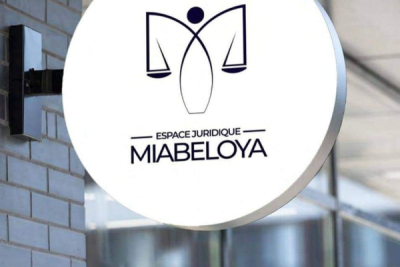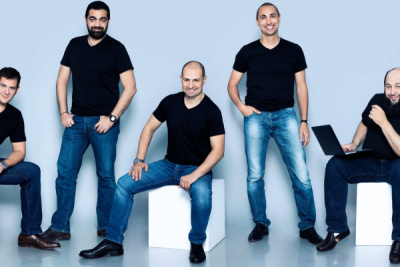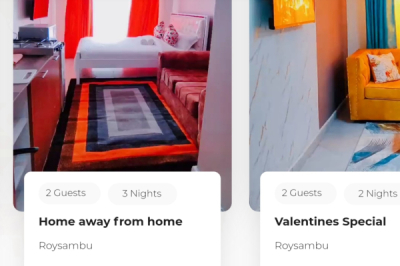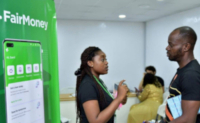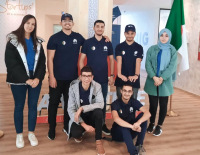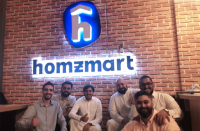
Solutions (581)
After his studies in the UK, Libyan-born Ammar Hmid returned to his home country to set up a food delivery startup. A few years later, despite the challenges it is facing, the startup is proving to be a useful tool for populations in Tripoli.
Presto Eat is a digital solution developed by an eponymous Lybian start-up, based in Tripoli. It allows its users to have food and groceries delivered.
Through its mobile app -available for Android and iOS devices, its users can create their accounts to access the listed restaurants, place orders and get them delivered anywhere in Tripoli and its surroundings.
Presto Eat claims more than 250,000 orders delivered since its launch. The startup behind it employs more than 500 Libyans. It also has 13 stores and departure points in Tripoli and over 380 partner businesses that use its services. Thanks to its departure points, it ensures fast deliveries and allows users to monitor the state of the deliveries in real-time.
According to PlayStore’s data, the Android version of its application has been downloaded over 100,000 times. Despite this success, Presto Eat is struggling to attract investors. The reasons cited include the political instability, in the country since 2011, and the lack of a proper technological ecosystem in the country. Nevertheless, the startup wants to extend its services to other cities in the country, namely Benghazi and Misrata.
For the time being, this expansion plan is just hopeful wishes for Presto Eat founder Ammar Hmid who points at investors’ seeming disinterest in the Libyan tech ecosystem. “We want to be the app for everything for Libyans. […] But […] Despite the growth, VCs and other investors aren’t keen on investing in the business. The ones that replied wanted me to do risk analysis on the Libyan market for them. But that’s not my job, my job as a founder is to grow my business. [Also], Libyans don’t have a strong startup mindset because there are other profitable sectors to work and invest in, like importation and FMCG, or even civil service,” he told TechCabal earlier this month.
Adoni Conrad Quenum
The startup behind the solution was founded in Senegal in 2015. Since then, it has expanded its reach to six countries, providing more than 1,000 businesses with various tools to optimize their performance.
Paydunya is a fintech solution developed by a Senegalese startup. It allows individuals and businesses to easily and securely collect payments online from a variety of payment methods, including e-wallets and bank cards.
"Paydunya offers businesses and financial institutions a suite of multi-channel digital solutions that facilitate the issuance and receipt of payments on websites or mobile applications, as well as the collection and disbursement of bulk payments," according to its website.
Once users register through its website or mobile app - available for Android and iOS devices - they can access the financial services it offers. For example, they can send and receive funds via mobile money or bank cards such as Visa and MasterCard.
Depending on the country, it charges between 1.5% and 2.5% commission for monthly flows below CFAF 10 million and between 1.4% and 2.4% for monthly flows above CFAF 10 million.
It currently claims more than 50,000 transactions processed daily, over 1,000 corporate clients, and a presence in six countries. According to PlayStore data, the Android version of its mobile application has been downloaded over 100,000 times.
Adoni Conrad Quenum
Most people unknowingly believe that only wealthy individuals and large corporations have access to legal counsel. To change this perception and help as many people as possible, tech entrepreneurs decided to launch a digital solution.
Miabéloya is a digital solution developed by a Togolese start-up. It facilitates access to legal services and professionals for individuals and businesses.
On its web platform, users can submit their cases to legal professionals. They can either fill out an online form detailing the case, or they can choose to have an instant discussion with the professionals on Whatsapp.
The startup supports businesses in their fight to protect their rights. It also assists in the development of real estate acquisition strategies. In short, it specializes in commercial law, corporate law, real estate law, labor law, and tax law. For legal situations in these sectors, it can be a strong ally in finding viable solutions.
At Miabéloya, the first consultation is always free of charge and the lawyers act quickly to resolve the cases as soon as possible. After the first free consultation, users can choose from several packages, including a basic package that costs CFAF10,000 (about $16) and a premium package that costs CFAF50,000. To set up a business, the legaltech charges CFAF 80,000 for a limited liability company and CFAF 200,000 for a simplified joint stock company or a limited liability company.
Adoni Conrad Quenum
The solution was initially active in the ride-sharing sector but, in March 2020, it shifted to the logistics sector. Despite the demise of its founder months later, it is faring well in the newly chosen activity.
Gokada is a digital solution developed by a Nigerian eponymous startup. It allows access to food and parcel delivery services. The startup behind the app was founded, in 2017, as a ride-sharing service. Since its launch, it has raised about $12.4 million to support its growth and, in March 2020, it fully shifted to the logistics sector.
The digital solution it launched then is accessible through a mobile app (available for Android and iOS devices). Using that app, users can create Gokada accounts to access various services. It is a handy solution for both individuals and businesses.
With its real-time tracking feature, it allows users to track the delivery status and position at any time. It also allows users to schedule pick-up services as timely as possible. Its delivery fares are also cheap, with fares being calculated based on the distance and time spent, not on the size or weight of the packages.
The startup claims more than 1,200 delivery drivers and over 1 million deliveries in less than a year. On Playstore, its Android app has been downloaded more than 100,000 times. So, it is a popular solution in Nigeria, although it is currently active in just some selected states. In September 2021, it entered Oyo State (Ibadan) but, in the coming months, it plans to launch in more states.
Adoni Conrad Quenum
Online education platforms are becoming popular by the day since the coronavirus pandemic. Besides attention and adoption, these platforms are also attracting a growing volume of investments.
Almentor is an e-learning platform developed by an Egyptian startup. It lets users get trained with various educational videos.
For Ihab Fikry, co-founder and CEO of Almentor, the solution hosts "an abundance of courses and talks that are capable of nurturing Arab youth, enhancing their experiences, and serving their career paths by providing them with what they deserve to advance their careers on all fronts."
To access the courses, users need to create an account, either via the solution's Android app or web platform, subscribe (the monthly subscription fee is $7.5), then choose a course or lecture. The user can choose courses in several categories including arts and design, photography and filmmaking, human resources, management, lifestyle, theater, sports, business, corporate communication, digital media, sales and marketing, and technology. All the courses and talks are in Arabic and most of the users and lecturers are Arab speakers.
In addition to the video content, the solution has a document library where users can expand their knowledge. According to PlayStore data, the mobile app has already been downloaded more than 50,000 times but, the startup behind the solution wants to reach more people. Since its launch, it has raised some $14.5 million to support its growth in the Middle East and North Africa.
Adoni Conrad Quenum
African countries have great tourism potential, which is not optimally exploited. To boost the sector in Kenya, some entrepreneurs launched a digital solution that helps tourists plan their stays.
Tripitaca is a digital solution launched by a Kenyan eponymous startup to allow users (tourists notably) to find accommodations closer to tourist attractions.
The souliton has no mobile application. So, users can access its services only through its web platform. Via the platform, tourists can create accounts and search for accommodation by providing information like the tourist attraction they are going to visit, the number of people, and the stay duration in the search bar. They can pay in multiple installments if they want, get assistance in case of emergency, get discounted offers, and extend their stay duration if their tours take longer than expected.
Property and hotel owners can also create accounts on Tirpitaca, thus offering services tailored to guests' specific needs and charging them accordingly.
Tripitaca also provides financial assistance to homeowners who need it. This gives these homeowners access to loans to get their businesses on track. In February 2023, the startup was selected along with four others to participate in Baobab Network's accelerator program. In addition to a support program, the startups will each receive $50,000 and meet potential investors during a demo day.
Adoni Conrad Quenum
In the African informal sector, which is a key component of most Sub-Saharan African economies (according to the IMF), traders face numerous challenges daily. In Kenya, some tech entrepreneurs have set up a solution to address the challenges for cosmetics traders.
Vutia is a virtual marketplace developed by a Kenyan startup. It allows cosmetics stores to source beauty and skincare products by democratizing access to quality cosmetics and beauty products in Africa through its distribution platform. "Positioned between the brand and the business customer, we are focused on the distribution of multiple categories of cosmetic and beauty products to informal traders, beauty salons, SPAs, and beauty shops. We source our products directly from manufacturers at the top of the value chain and deliver to vendors at competitive prices," the platform explains.
Via its website or by sending SMS and Whatsapp messages, users can order cosmetics in bulk. Before they can order the products via the website, they need to create an account.
Products purchased on the marketplace are delivered for free (for Vutia clients) the following day. The platform also offers users the possibility to become cosmetics sellers or Vutia agents. As sellers or agents, they can earn money by promoting and delivering beauty and personal care products in their communities or neighborhoods.
In February 2023, the platform was selected along with four other startups by the Baobab Network's 2023 acceleration program. The selection entitles it to $50,000 support and the opportunity to be presented to potential investors during demo days.
Adoni Conrad Quenum
In Africa, traditional financial institutions are usually unable to meet the needs of part of the population. This creates a great funding gap that tech entrepreneurs are trying to bridge with innovative solutions.
FairMoney is a fintech solution developed by a Nigerian startup, which aims to "build the leading mobile bank for emerging markets." It allows its users access to instant collateral-free loans.
"Banks stayed apart from this untapped market because of the lack of digital tech expertise to serve people with limited revenues in remote areas. […] We leverage digital technologies to offer financial services to people, even for very small transactions and loans, in remote areas. [...] We hit a US$93 million disbursement volume in 2020, despite COVID-19 which impacted lending businesses," said Laurin Hainy, CEO of FairMoney.
Through its Android app, users can create a FairMoney account by filling the required form. They specifically need the telephone number linked to their Bank Verification Numbers.
Once they create the account, they can link a bank account or card to that account and start receiving loans. The startup requires no documentation but, it is worth mentioning that thanks to the BVN, it can identify its users. In its FAQs, the startup explains that it "collects and processes securely data from your phone (SMS, device details, location, phonebook) to make a lending decision. This data is necessary for us to approve your loan in real-time without asking you for cumbersome paperwork." Since the launch of its instant loan solution, the startup has attracted thousands of users. Playstore stats show the Android app has been downloaded more than 10 million times.
Adoni Conrad Quenum
On January 5, 2023, Algerian team SevenG won the second prize in the finals of the global competition organized by Huawei. It won the prize thanks to its AI tool that automates farming. At a time when food insecurity is hanging over millions of people all over the world, the seven students who launched the tool believe that it is an efficient and less restrictive solution to make farming more profitable. In an interview with We Are Tech, they present their ambitious project.
What inspired you to launch FarmAI?
We were inspired by the food insecurity affecting Algeria and several countries in the world. We decided to develop an IT system, combined with other tools, which would help create a smart farm, monitor crops, identify pests, build a smart irrigation system, and monitor weather changes. The main idea is to quickly detect and efficiently respond to diseases affecting farms.
How does your solution work?
The early wheat rust disease detection system combines artificial intelligence and drones to monitor wheat fields. The drone flies around the field every 4 days, capturing images of the plants with its camera. This data is then transferred to a deep neural network that performs image classification and analysis to identify possible infections. If a set of data points at a high infection probability, the system will alert the farmer through a mobile app and backend system, allowing the farmer to take the necessary actions to preserve crops and avoid financial losses.
We already have audiences with the Ministries of Economy and Agriculture. They will help us either partner with local drone manufacturers or purchase our drones. In both cases, the great support offered by the President of the Republic to agritech and startups is a real opportunity.
Why did you choose artificial intelligence to power your solution?
We didn't choose to use artificial intelligence (AI) because it's a trendy technology or something like that, but our problem requires a lot of effort, time, and money. So, as we all know, AI improves the speed, accuracy, and efficiency of human actions. Those are the reasons we chose AI for our FarmAI project. At this stage, we are using AI in two key functions which are computer vision and the automation of drones that monitor farms, process images and classify them.
Given the potential of artificial intelligence, why limit the solution to the identification of wheat rust only?
At the beginning of the Tech4good competition, our idea was to develop a system that would help reduce losses in farms and ensure food security in our country. But, as we were time-limited and our project was focused on a specific feature, which is the detection of rust disease, even before the competition, our mentors advised us to pursue this feature. Nevertheless, we plan to add other features, including pest detection and the detection of other diseases. We plan to deploy our solution in more farms.
Our focus on wheat rust stems from the position of wheat in the Algerian economy. Algerians consume more than 100 kilograms of wheat yearly. The country produces and exports the commodity, which is a great source of income for households and the whole country. Our solution helps address food and economic issues not only in Algeria but also in the whole world.
What are SevenG's plans for FarmAi after Tech4Good?
The next step is to test our solution. We have already spoken with farmers and most of them are interested. The solution has been developed in such a way that it is easy to use even for non -tech-savvy individuals. Since most farmers are already using smartphones, they only have to check the reports since everything that has to do with drone calibration, launch, and data analysis is automated.
Once we are done with the testing phase, we will offer free trials to farmers to convince them of the usefulness of our solution. Then, we will seek investors to quickly develop our business and get more clients.
The African e-commerce sector is growing rapidly. Like the fintech startup, it has attracted a growing number of investments, allowing entrepreneurs to develop local solutions.
Homzmart is an online shopping platform developed by an Egyptian startup to allow users to purchase home goods such as furniture.
On its mobile (Android and iOS) and web platforms, the solution lists the various items including furniture and kitchen appliances, and their "interesting prices." Its AI algorithm also showcases items that can interest visitors who need to create an account to buy the products they want.
Homzmart has established itself in its home country, increasing its sales 30-fold between 2020 and 2021. "We have seized the opportunity to digitize shopping for furniture and home goods. The market opportunity in the region is huge, and our business model is perfectly set up for it. Homzmart provides an easy one-stop-shop platform to transform the experience for furniture sellers and consumers," said Mahmoud Ibrahim, Homzmart co-founder, and CEO, in 2021.
Its Android app has been downloaded more than 500,000 times. It plans to grow its national presence and expand in the Middle East after its launch in Saudi Arabia. It has raised more than US$40 million to fulfill that ambition.
Adoni Conrad Quenum
More...
In recent years, fintech companies have driven the growth in venture financing in the African tech ecosystem. They attract billions of dollars, encouraging tech entrepreneurs to develop solutions adapted to local realities.
Anchor is a fintech solution developed by a Nigerian startup, allowing users to create financial products and services.
"We built Anchor to abstract away the complexities in building financial products, so businesses can get started in five minutes with a few lines of code. […] We have seen first-hand the painful process of closing banking partnerships, negotiating third-party contracts, and obtaining regulatory approvals. And more generally, the extensive time and effort required to launch financial products," explains Anchor co-founder Segun Adeyemi.
The fintech solution provides the infrastructure, the tools, and the documentation that can help developers easily develop financial products (KYC, fund transfers, account opening, etc) in minutes.
Anchor also offers flexible functionalities companies need to improve international performance. It also facilitates complicated financial operations. In 2022, it was selected to join the summer cohort of startup accelerator Y Combinator. This allowed it access to US$500,000 financing and access to an international pool of investors.
Adoni Conrad Quenum
Real estate is one of the fastest-growing sectors in Africa. However, it is sometimes hard for newcomers to enter the field. This is why some tech entrepreneurs developed a digital solution to facilitate investments.
AlphabloQ is a digital solution developed by a Kenyan startup to help Kenyans easily invest in the real estate industry or buy properties.
"We are making real estate investments accessible and profitable for investors like yourself. In a few simple steps, you too can begin building long-term wealth and generate passive cash flows monthly," the platform indicates.
Currently, the solution has no mobile app. Users can nevertheless access its web platform and create an account either as an investor or a seller.
Investors can browse the available properties and check the monthly cash flow they can expect. As for sellers, they can notify the startup of the properties they want to sell. The solution also facilitates exit from real estate investments by buying or selling tokens that represent fractions of real estate properties.
In January 2023, it was selected, along with 11 African startups, to take part in the acceleration program ARM Labs Lagos Techstars. The selection entitled it to up to US$120,000 in equity financing and additional support.
Adoni Conrad Quenum
In large African towns, it is sometimes difficult to move around, with the constant traffic jams and poor roads. In that context, Schoolz wants to help students easily get to school.
Schoolz is a digital solution developed by an Egyptian startup to help students get to school easily no matter the conditions of the roads and the state of the traffic.
Using its Android or iOS apps, users can register for its services (only parents are allowed to register on behalf of underage students), access a list of bus routes and the real-time location of the bus they are going to board
The startup behind the solution explains that to ensure safety, it uses modern technologies and cameras and employs trained drivers and supervisors inside each bus. Currently, on Playstore, its Android app has been downloaded more than 5,000 times already.
"In the first week of the launch, we transported the first group of students to their schools, then we transported children to the club during the weekend. Quickly, schools, sports academies, and clubs communicated to us to use our services. We immediately provided technology, tools, and transportation technology for them, whether using our fleet or by using Schoolz system to manage the transportation process smoothly and completely," explains Hosni Ahmed, CEO and co-founder of Schoolz.
The startup now wants to diversify its operations and enter the business field, offering SaaS solutions to companies in Saudi Arabia and Egypt.
Adoni Conrad Quenum
Jand2Gidi is a digital startup developed by a Nigerian logistics startup. It allows merchants to send packages around and outside Nigeria and also receive packages from abroad.
To access its services, users need to visit its web platform and create an account to access the Jan2Gidi dashboard that allows subscriptions to the various services.
The solution allows users to have international delivery addresses where their packages can be delivered. From there, it takes over to deliver the packages in Nigeria. It also offers a service called "Shop For Me," which enables users who so wish to order from US and UK stores through Jan2Gidi.
It also offers bicycle or van delivery services from Lagos and Abuja to the 36 states in Nigeria, transportation and relocation services as well as sea freight for heavy machinery, cars, and bulky items to be shipped to Nigeria.
In January 2023, the startup was selected, along with ten others, to participate in the third edition of the Africa Startup Initiative Program (ASIP) acceleration program that entitles participants to US$18,000 in equity contribution and US$750,000 in credits, services, and in-kind value.
Adoni Conrad Quenum




